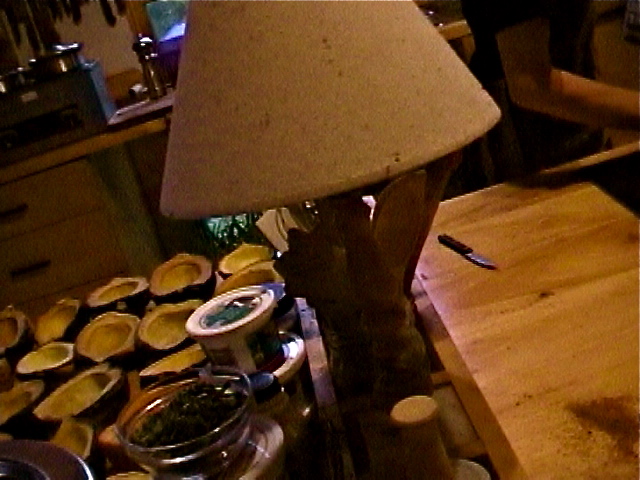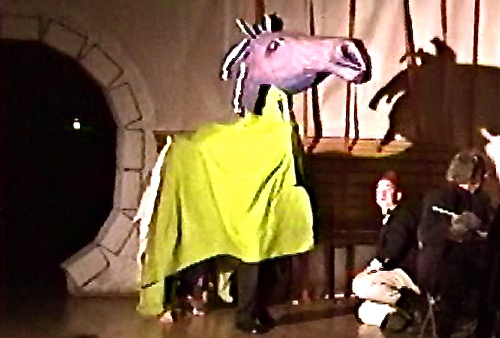 Theater and the Stomach
Theater and the Stomach
.
.
.
.
Writings from Peter Schumann, founder of the Bread and Puppet Theater in Vermont.
.
.
.
.
.
.
.
“We sometimes give you a piece of bread along with the puppet show because our bread and theater belong together. For a long time the theater arts have been separated from the stomach.
.
Theater was entertainment. Entertainment was meant for the skin. Bread was meant for the stomach. The old rites of baking, eating, and offering bread were forgotten. The bread decayed and became mush. We would like you to take your shoes off when you come to our puppet show or we would like to bless you with the fiddle bow. The bread shall remind you of the sacrament of eating.
.
.
We want you to understand that theater is not yet an established form, not the place of commerce you think it is, where you pay to get something. Theater is different. It is more like bread, more like a necessity.
Theater is a form of religion. It is fun. It preaches sermons and it builds up a self sufficient ritual where the actors try to raise their lives to the purity and ecstasy of the actions in which they participate.
.
.
.
.
Puppet theater is the theater of all means. Puppets and masks should be played in the street. They are louder than the traffic. They don’t teach problems, but they scream and dance and hit each other on the head and display life in its clearest terms.
.
.
.
.
Puppet theater is an extension of sculpture. A professional sculptor doesn’t have much to do but decorate libraries or schools. But to take sculpture into the streets, to tell a story with it, to make music and dances for it—that’s what interests me.
.
.

